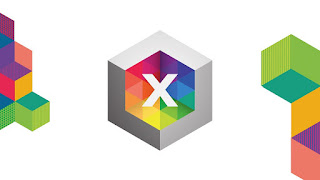Aside from the news bulletins you can pretty much escape the General Election ballyhoo on BBC Radio 3. But that wasn’t always the case.
One of the now forgotten pieces of radio broadcasting is, I suspect, the full reading of all the election results, aside from a few stragglers or recounts, on the Third Programme and Radio 3. Over two or three hours a couple or so continuity announcers would read out the results in alphabetic order of constituency. This service was a feature of BBC radio election coverage in the 1960s and 1970s. It ended with the 1979 election after which time if you wanted to know the full list of results you could check out CEEFAX. (1)
In the 1950s any BBC radio election programmes were shared between the Home Service and Light Programme. But for the 1959 election the BBC also used the daytime wavelengths of the Third Programme, known as Network Three, from 10 am on the Friday to carry “results as they become available with summaries of the state of the parties every fifteen minutes”.
For the October 1964 election all three national networks offered something different overnight. On the Home Service How the Nation Polled presented by Hardiman Scott, on the Light Election Night Music Till Dawn with Tim Gudgin and on the Third Programme from 11.10 pm to about 3.30 am the Election Results in Full. This was just a straight reporting service read by announcers David Broomfield, Andrew Gemmill and John Spurling.
The March 1966 election saw the same arrangement with the same presenters and this time David Broomfield, Andrew Gemmill and Roy Williamson reading the full results. As the Radio Times described it the Home was ‘fastest’, the Light ‘gayest’ and the Third ‘fullest’.
June 1970 and Hardiman Scott, now promoted to be the BBC’s first Political Editor, was back on Radio 4 but with Ray Moore and Peter Donaldson doing the honours on Radio 2 with Night Ride to Westminster. Meanwhile over on Radio 3 the overnight service had been dropped in favour of a full reading of the results between 7 and 9 am the following morning, this time read by Peter Latham and Peter Barker. This made it a little easier for listeners to know when their own constituency was coming up. The Radio Times explained: ‘for easy reference, Radio 3 offers this special service of all the overnight election results, broadcast in alphabetical order, and divided into approximate time-sequences. Listeners wishing to know particular results can thus tell roughly when they will be coming up. While unavoidably a particular sequence may run beyond its time allotment, for listeners' convenience none will start before the times given.’
In February 1974 it was yet again Hardiman Scott on Radio 4 whilst Radio 2’s Night Ride was hosted by Len Jackson, Eugene Fraser and Jimmy Kingsbury. Reading the results on Radio 3 on Friday morning were Peter Barker and Patricia Hughes.
1974 was the year of two elections so in October it was, for the final time, Hardiman Scott and then Len Jackson and Don Durbridge doing the Radio2 honours. The task of reading the Radio 3 results fell to Peter Barker, Patricia Hughes and John Holmstrom.
And finally in May 1979 it was all change. Radio 4’s Countdown to Number Ten was presented by Brian Redhead and Radio 2’s by Jimmy Young.(2) Meanwhile the morning results service was now extended to three hours and on Radio 3 medium wave only. The Radio Times doesn’t bill the announcers but my notes list Peter Barker, Patricia Hughes and John Holmstrom. That 10 am end time was something of an approximation as the broadcast didn’t actually end until 11.10 am. (3)
(1) CEEFAX was available in 1979 but only for an estimated 50,000 viewers. For many sets it was still necessary to buy a decoder costing over £200. From 1974 the results started to be shown on BBC2 on the Friday morning. From 1987 BBC2 showed the CEEFAX results service.
(2) Brian Redhead would present the Radio 4 overnight coverage again in 1983, 1987 and 1992 before James Naughtie assumed the role in 1997. Jimmy Young, often paired with Brian Curtois, was in charge of Radio 2’s service until his final election duty in June 2001.
(3) I didn’t record any of this final results reading though I’m pretty sure I’ve heard a clip from either it or one of the earlier programmes so I’m guessing some of it must exist in Sound Archives.



